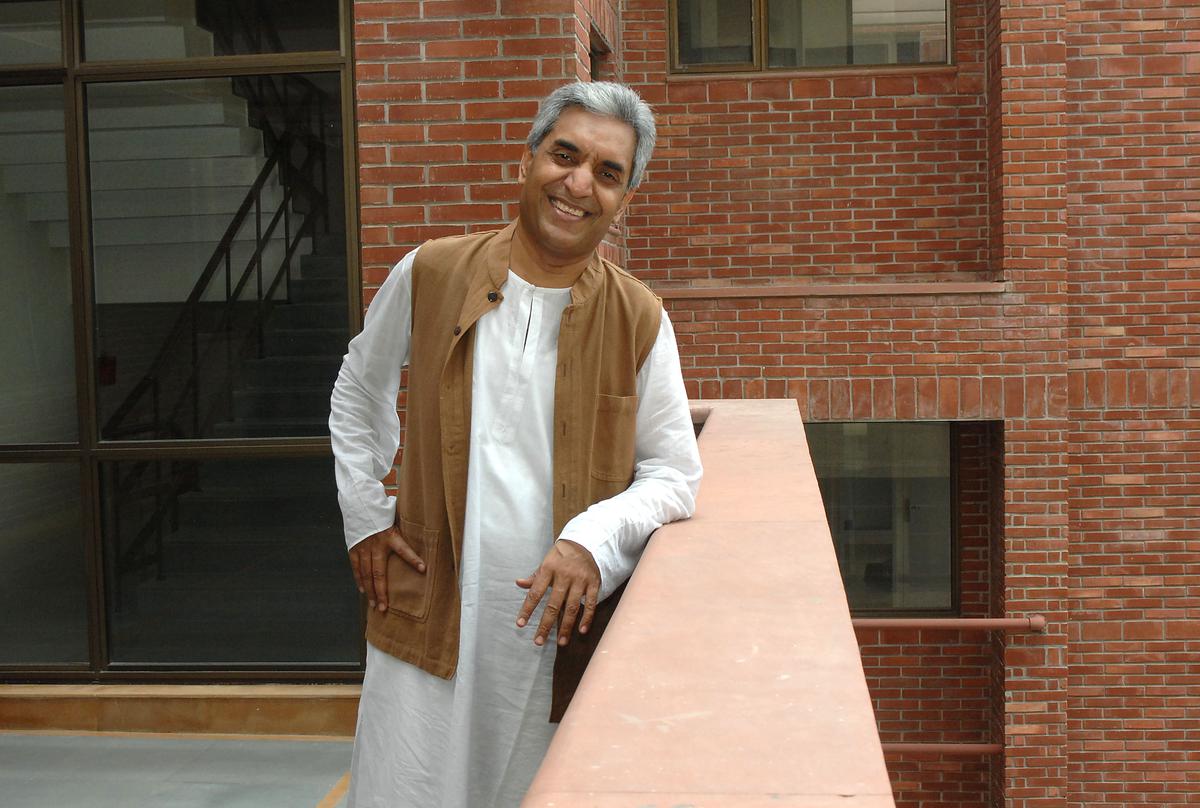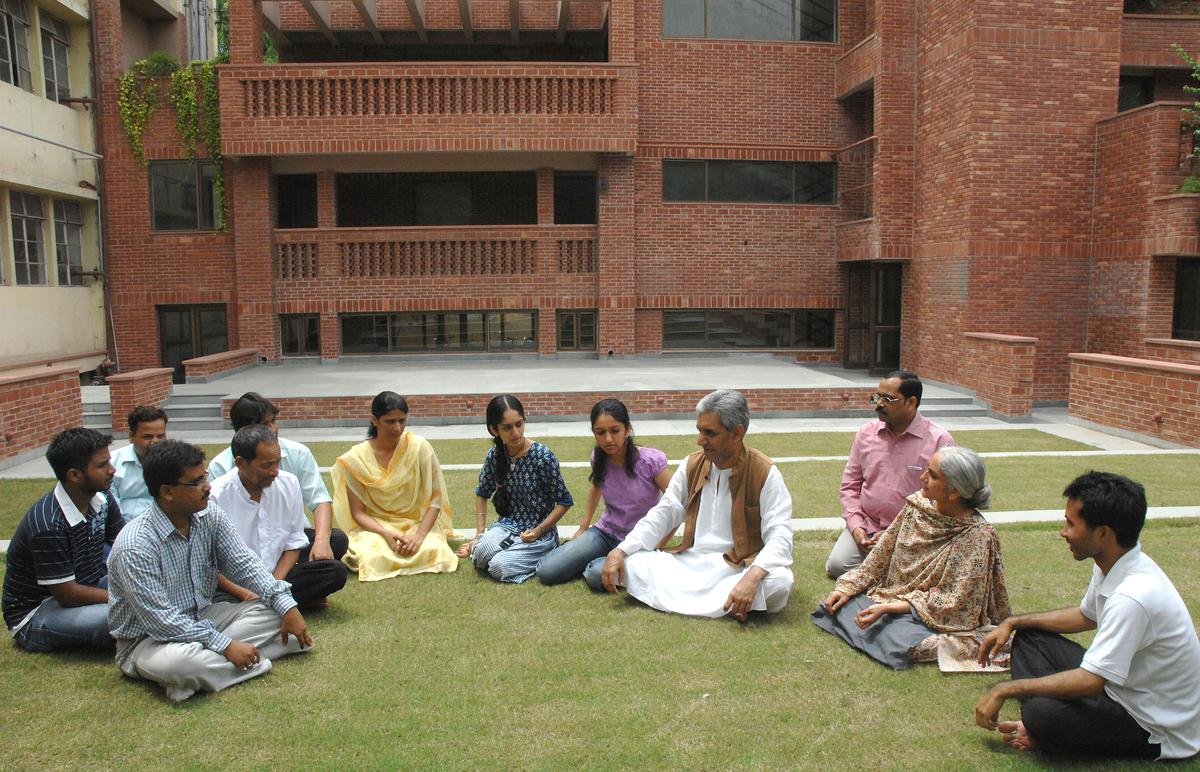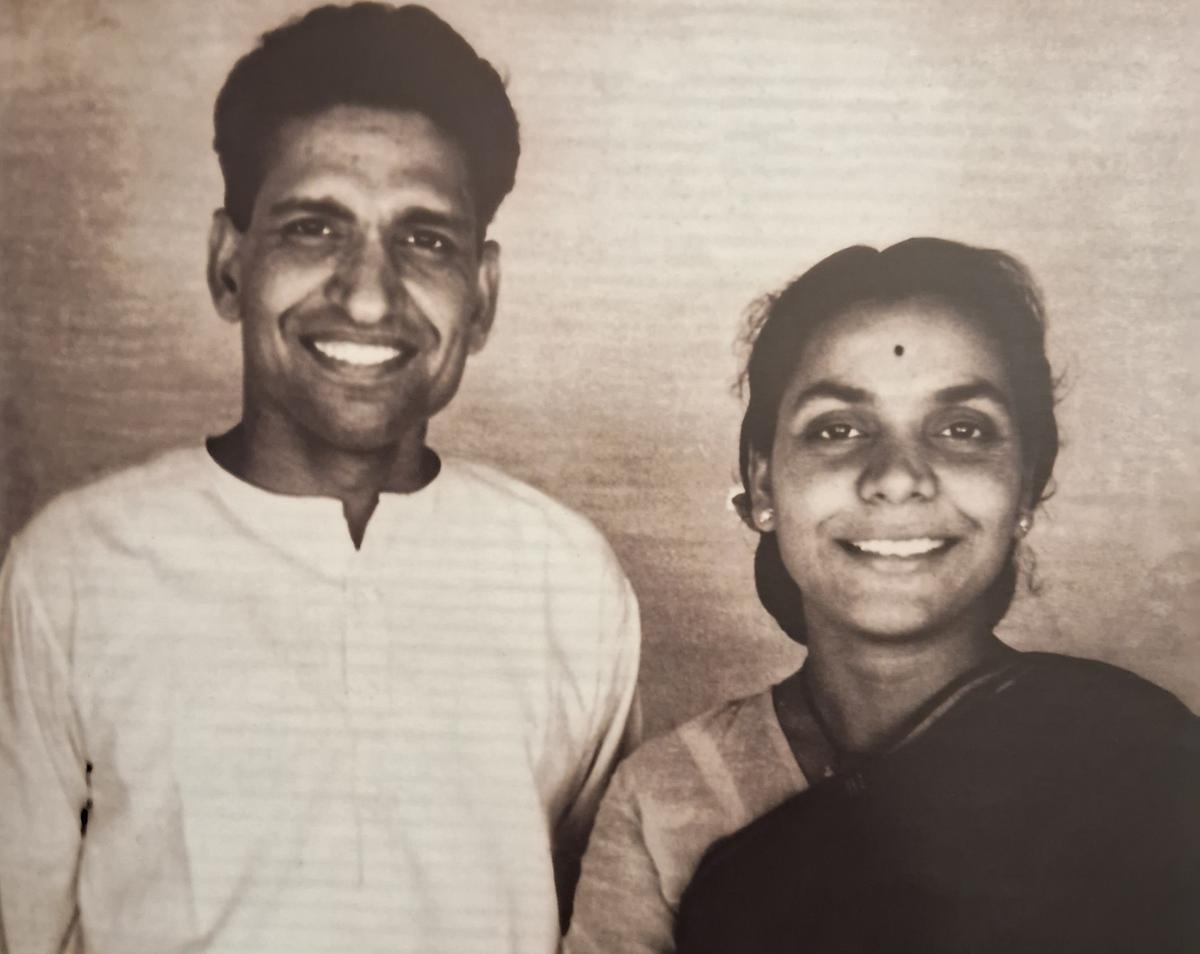Gandharva Mahavidyalaya, Delhi.
| Photo Credit: The Hindu Archives
Delhi’s eagerly awaited annual Pt. Vishnu Digambar Jayanti will open over the weekend, with its usual elegant, understated showcasing of India’s best classical music. As always, there are stars (Pt. Venkatesh Kumar, Niladri Kumar, Ayaan Ali Bangash and Manjusha Patil), solid performers (Pt. Ram Deshpande) and young performers (Shadaj Godkhindi).

Senior Hindustani vocalist and principal of Gandharva Mahavidyala, Pt. Madhup Mudgal, n New Delhi on July 22, 2008.
| Photo Credit:
Shanker Chakravarty
Pt. Madhup Mudgal, who now heads the Gandharva Mahavidyalaya, which organises the festival, remembers most of the earlier editions (the first was in 1946). Recalling the core vision that drove his father and uncles to establish the revered music institution and come up with the idea of an annual jayanti, he says the aim was to teach music to the lay man, and not make it the preserve of ‘gharanedaar’ families, who inherit music as legacy, and are expected to zealously guard it from outsiders.

Senior Hindustani vocalist Pandit Madhup Mudgal, principal of Gandharva Mahavidyalaya with his artistes and staff, in New Delhi on July 22, 2008. Gandharva Mahavidyalaya was founded by the late Vinaya Chandra Maudgalya in 1939. kravarty
| Photo Credit:
Shanker Chakravarty
Apparently, when Pt Vinay Chandra Maudgalya (Madhup’s father), popularly known as ‘Bhaiji’, came from Pune to Delhi in 1939, he found the city barren, musically. Wanting to teach music and create an environment for music to flourish, he started the music school, where the first students were children of friends — Kapila Vatsayan and her brother Subhash, and Sudha and Pratibha (daughters of Pt Sudhakar). The venue was 42C Connaught Place. Today the sprawling Gandharva Vidyalaya is home to over 1,000 students; many octogenarians in Delhi have at some point or the other done music courses here, making the core audience that attends the Pt. Vishnu Digambar Jayanti an intimate event. Regular music workshops and lec-dems continue to be held.

Pt. Vinay Chandra Maudgalya and Padma Devi.
| Photo Credit:
Special Arrangement
In 1974, the school premises shifted to the current expansive location on Deen Dayal Upadhya Marg. In 1976, when the building was still in construction, the first festival was held, with the artistes staying on the premises. Madhup recalls Pt Shiv Kumar Sharma, Pt. C.R. Vyas, Pt. Vasantrao Deshpande and Pt. Kumar Gandharva amongst the participating artistes; everyone lived and ate together on the same floor. His mother, Padma Devi Maudgalya, used to cook food for everyone.
In earlier editions of the festivals, informative seminars were held too, with participation by erudite scholar musicians like Pt. Dilip Chand Vedi, Pt. Ratanjankar, Pt. Jeevanlal Mattoo, and Thakur Jaideva.
Madhup recalls how performances used to go on for hours; one such was the concert by Ustad Vilayat Khan, which lasted five hours. In fact, once at Kamani auditorium, the concert by had to be stopped as the staff thought it was too late. The venue then shifted, until the Kamani auditorium owners intervened and assured they would not stop recitals in the future. Photographs of concerts reveal the informal baithak nature of the performances; the stage was always packed with eager listeners who wanted to be closer to the artistes.
“We have also had concerts at different times; once from 10a.m. to 5 p.m., once from 4 p.m. to 10 p.m., so that the artists could present different ragas. Even now, we always have a morning session, even if it’s only a two-day festival.
Artistes were never paid a fee; only their travelling expenses were met. Even the notoriously exacting Kishori Amonkar quipped after a concert, how did you get me to sing for free. “I still remember the divine Bageshwari she sang,” says Madhup Mudgal.